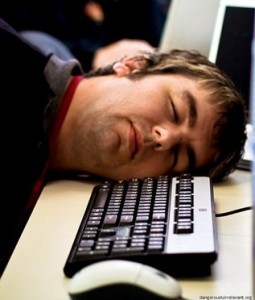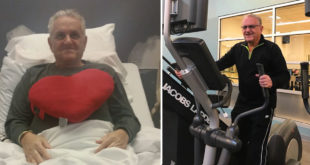Sleep study experts warn of troubles that can ensue as technology continues to invade bedrooms worldwide. In 2007, light-years ago in the tech world, a study of over 1,000 Americans indicated that 65 percent of consumers spent more time with their personal computer than with their spouse. Not surprising, considering most of our waking hours are spent at work. Imagine how this number has increased since we now have even smaller, faster, more convenient devices for connecting with the world at large. We bring them everywhere—from meetings to wining and dining, so why not sleep with them?
Turn It Off
Ancient Zen leaders theorize that multitasking can lead to ignorance. Although an extreme take on what society continues to attempt, multitasking while trying to sleep can lead to poor health. This is exactly what all that e-mailing and texting from between the sheets is an effort to do.
Some sleepers allow consumer electronics to interrupt blissful moments of rest that our overworked bodies and minds require. In addition, having electronics in the bedroom wrecks the peaceful association between bed and sleep. No longer regarded as a sanctuary of comfort for the ultimate respite, your bedroom becomes a thriving metropolis of work and correspondence. You may not see it as such, but your subliminal psyche does.
Why This “Restless Finger Syndrome”
Many experience a dedication to work that takes on an obsessive nature. Particularly during challenging economic times, one’s career may seem fragile. Being on top of your game with the latest updates and information can seem essential. Combined with human nature’s instinct to respond more to variable reinforcement, itchy fingers find the need to check those messages at all hours.
E-mail is the perfect variable reinforcement vehicle. Although not all messages are of great importance or priority, at precisely the right interval something juicy will arrive. It’s difficult to resist checking for just such a message because it comes through at random. If rewarded with consistent reinforcement (for example, an In Box full of consistently good or bad e-mails), predictability would supposedly diminish the instinct to click.

This theory also partly explains why some vacationers sneak in the bathroom to check messages. Tired of complaints from friends and family, they check in with the office on the sly. This is stressful in itself. Others recognize their “weakness,” and specifically seek vacation destinations with limited wireless coverage. Not a bad idea.
What’s the Harm?
Aside from a frustrated co-sleeper, there are serious health consequences for this late-night habit. Unlike sleep disturbances caused by struggling with an emotional conundrum, a snoring issue, or a colicky infant, issues caused by tech-ing at night creep in more subtly. A simple check during a deal-making project can evolve into a regular nightly round of e-mails at 2:00 a.m. Suddenly, it’s not a bad night of sleep but a poor sleeping routine.
The classic conditioning of bed being for sleep is confused. Non-sleep and non-restful activities trigger a new response from your brain. You may start to have trouble falling asleep and staying asleep. Your body has learned another response to this bedtime period, one where frequent waking prevents quality sleep, which is when we become truly rejuvenated.
Adequate sleep is known to improve: immune system, reaction time, vision, judgment, performance, memory, and information-processing ability. It’s no wonder we all yearn for a solid stretch of it. The body requires seven or eight hours of sleep per day. Statistics reveal six hours or less triples your chance of a car accident; over nine hours reduces your lifespan compared to the eight-hour counterparts.
Sleep Less, Weigh More
Recent studies report inadequate sleep can lead to poor eating habits and an overall decline in health. A strong connection is being made between sleep and obesity. Sleep deprivation can increase hormone levels that trigger hunger while simultaneously lowering levels that help maintain willpower. Hence, the sleep-deprived hunger easily and have trouble resisting food—a sabotage to any diet.

Lack of sleep also affects emotions. Feelings of sadness, depression, or irritability often send people to the fridge. (Not the ideal frame-of-mind for answering e-mails, either.) And, hey, if you’re awake IMing at all hours, you might find your stomach growling then, too. Just as one develops a habit of texting during the night, so could one create a new hunger time. Keyboarding isn’t considered a high calorie burner. Beware of those munchies by the glow of your cell phone.
Let It Go—For the Moment (or the Night)
Consider what is at stake. Ask yourself a few simple questions:
- How will you feel “the morning after”?
- Will texting by moonlight really give you a jump worthy of all the benefits stolen from a good night’s rest?
- Would results differ if you waited until morning to send out that report or respond to that idea?
- Why are you texting at 3:00 a.m.? Are you trying to prove your importance to a potential girlfriend? Instead, you might just be smothering her.
The answers probably confirm nothing much is gained by answering e-mails throughout the night (except maybe a few pounds). And, a lot is lost, including your mate’s patience with this modern sleep intruder.
Give yourself an allotted time for answering e-mails, text messages, and phone calls prior to entering your bedroom for sleep. Set aside an adequate amount of time to clear the most important messages from your In Box. Keep the phone, computer, and other communication electronics in a different part of the house.
Enjoy the end of your evening. Read, chat/flirt live with your spouse, or meditate—all of which are encouraged in bed. If you are disciplined enough (and not in the midst of a tense thread with that irate coworker or your in-laws), allow yourself a 5-minute e-mail peek prior to going to sleep. This last check can assure you of project status or weekend plans prior to entering dreamland. If it’s late enough, you might not even get any messages throughout the night. Now, here’s the hard part …
Click off the connections and leave the room. The world will be there first thing in the morning, and so will a refreshed you.
Sources
“Sleep Benefits: Power Napping for Increased Productivity, Stress Relief & Health,” Elizabeth Scott at www.about.com.
“Sleep? Too Busy in Bed,” Paul Jablow, The Philadelphia Inquirer, Friday, July 16, 2010.
“Why We Can’t Unplug on Vacation,” Elizabeth Landau at www.cnn.com.
“7 Tips on Handling Computer Stress and Frustration,” Elizabeth Scott at www.about.com.
Image Credits
Laptop, tucked-in: www.flickr.com/photos/jenny8lee/4600916851/
Text squat: www.flickr.com/photos/moriza/175599316/
Asleep at keyboard: www.flickr.com/photos/mcleod/4150969115/
 Fitness & Wellness News Your Source for Fitness News, Wellness News, Health News, and Nutrition News!
Fitness & Wellness News Your Source for Fitness News, Wellness News, Health News, and Nutrition News!



